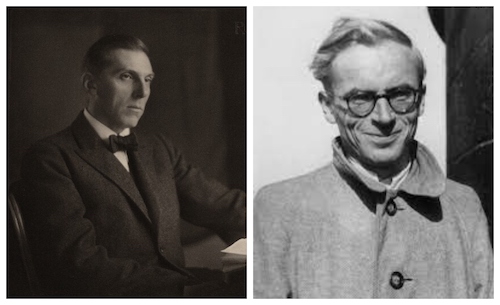by Jarrett Hoffman
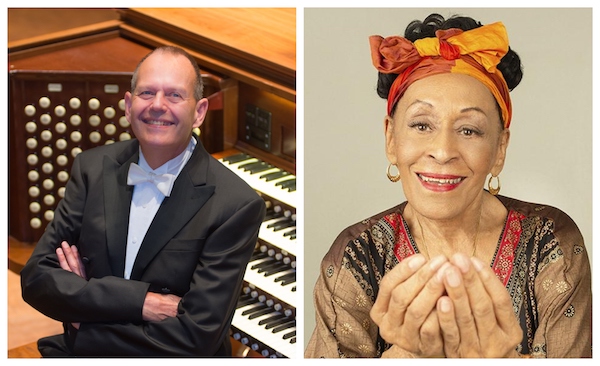
•Today: organist and Bach specialist James Kibbie at Trinity, “grande dame of classic Cuban song” Omara Portuondo at CMA, a Baroque opera pastiche from CWRU Baroque ensembles, and a double concerto for two flutes receiving its premiere at Oberlin
•Announcements and job listings: live album from Night Ranger and CYO debuts at No. 1 among classical crossovers on Billboard, Cleveland Orchestra seeks nominations for MLK Service in the Arts Awards, OAC executive director Donna S. Collins adds national position, and Oberlin invites invitations for piano faculty position
•Almanac: Kent Kennan, Maria Callas, Roger Quilter, and Hugo Distler
HAPPENING TODAY:
Today’s noontime Trinity Brownbag Concert features University of Michigan faculty organist James Kibbie (above, left) performing on both of Trinity’s pipe organs. His program, “Bach and More,” includes works by that composer — a specialty of Kibbie’s — as well as Fela Sowande, Jehan Alain, and John Weaver. A freewill offering will be taken up. Find more details here, and stream it here.
At 7:30, the CMA Performing Arts Series presents Omara Portuondo (above, right), “grande dame of classic Cuban song.” A nonagenarian in her seventh decade of performing, currently traveling as part of her Farewell World Tour Vida 2023, Portuondo will be joined at CMA by Jose Portillo (piano), Ramses Rodriguez (drums), Lino Piquero (bass), and Degnis Bofill (percussion). Tickets are available here.
Also at 7:30 are two offerings from the area’s rising talents.
At CIM’s Mixon Hall, the CWRU Baroque Orchestra (Julie Andrijeski, director, Stephen Stubbs, guest director) will collaborate with the school’s Baroque Vocal Ensemble in a program titled “Orpheus Before Gluck: A Baroque Opera Pastiche.” It’s free but reservations are required — click here for those, and for program details.
And at Oberlin’s Finney Chapel, the Oberlin Orchestra, under the direction of Raphael Jiménez, will play Cindy McTee’s Symphony No. 1: Ballet for Orchestra and the world premiere of Paul Desenne’s Concerto for Two Flutes and Orchestra, featuring faculty flutist Alexa Still and fourth-year student Dylan Masariego. It’s free.
ANNOUNCEMENTS & JOB LISTINGS:
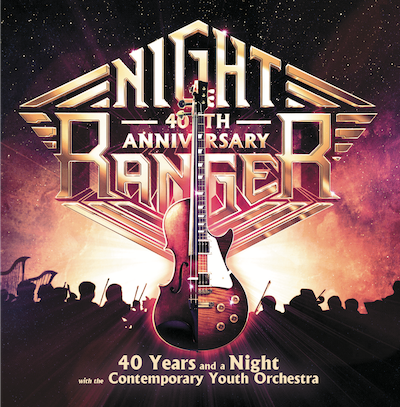
The Cleveland Orchestra seeks nominations for the Dr. Martin Luther King Jr. Service in the Arts Awards, recognizing individuals and organizations for their positive impact on music and the arts in the Cleveland community. The nomination deadline is November 17 — click here to make a submission.
The Ohio Arts Council has announced that its executive director, Donna S. Collins, has been elected as board chair for the National Association of State Arts Agencies. She will continue to lead OAC while serving a two-year term at NASAA. Read the full announcement here.
And Oberlin Conservatory invites applications for a full-time, tenure-track position in piano beginning in the 2024-25 academic year. Details here.
TODAY’S ALMANAC:
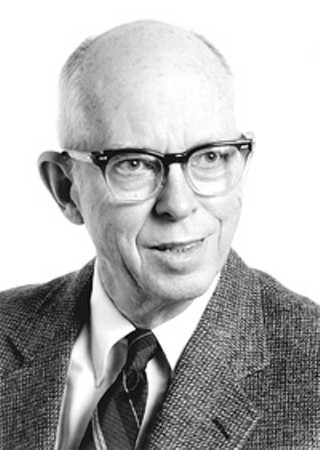
Night Soliloquy was originally written for flute and string orchestra, a version you can hear on YouTube in a 1943 performance by Arturo Toscanini and the NBC Symphony (the soloist goes unnamed). It was later transcribed with piano accompaniment, and with wind ensemble — listen here from flutist Denis Bouriakov and pianist Ji-Yoon Kim, and here from flutist Betsy Hill and the Jason K. Fettig-led “President’s Own” United States Marine Band, whose clarinets beautifully capture the timbre of the mysterious, pulsating opening.
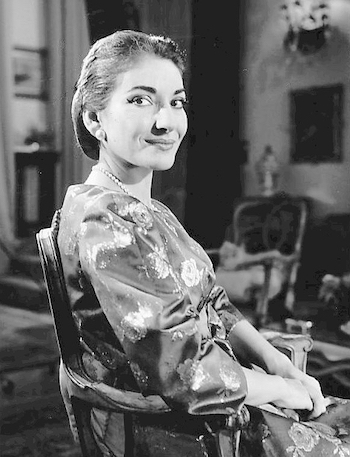
The title role of Norma was something of a signature for Callas over the course of her career. With that opera, she made other important debuts including in London (1952, Royal Opera House) and with the Metropolitan Opera (1956).
A performance of Norma at the Rome Opera House in 1958 was also the setting for a famous controversy in the soprano’s career, when she was hounded by the media for canceling after the first act due to illness, with the president of Italy in attendance. It’s worth noting that she was confirmed to have bronchitis and tracheitis — and that the day beforehand, she advised the opera house’s management that they should have a standby ready since she was feeling unwell. Their response? “No one can double Callas.”
In choosing recordings of Callas singing Norma, you can’t go wrong. But perhaps it is relevant to note that some critics believe her richest sound came before the mid-1950s, when she underwent rapid weight loss — deleterious to her health mentally and physically — after director Luchino Visconti told her he wouldn’t work with her otherwise. Click here (cued up to 34:22) to listen to Callas sing the aria “Casta Diva” in a live performance in 1952 with Vittorio Gui and the Royal Opera House.
Now we turn to Daniel Hathaway for tributes to Roger Quilter (left) and Hugo Distler (right):
English art song composer Roger Quilter was born on this date in 1877 in Hove, Sussex. He took leave of this life in 1953, leaving a legacy of over a hundred songs, many setting texts by Shakespere, that still figure importantly in vocal recitals. His Three Shakespeare Songs of 1905 are probably at the top of the list, and composer Peter Warlock wrote that O Mistress Mine is “one of the very few things that very simply send me into ecstasies every time I play it.” This performance of the set is by baritone Zak Kariithi and pianist Lemuel Grave.
And German organist, composer, and choral conductor Hugo Distler died at his own hand in Berlin on November 1, 1942. Though he suffered depression over the fate of his colleagues during the Third Reich, as Nick Strimple writes in Choral Music in the Twentieth Century, “it appears that he saw the futility of attempting to serve both God and Nazis, and came to terms with his own conscience unequivocally.”
Distler wrote a great deal of neo-Baroque music for organ and choirs. For just a sampling, listen to his motet Singet dem Herrn ein neues Lied as sung by the Oberlin Collegium Musicum under Steven Plank on a Trinity Cathedral Brownbag Concert on May 4, 2011.
A work particularly suitable for Hallowe’en-time is Distler’s Totentanz, a 14-movement choral cycle based on poetry by Angelus Silesius. Between the movements, Distler interleaved a friend’s paraphrases of poetry from the Lübecker Totentanz, “a dialogue in Middle Low German between Death and its victims.” The Netherlands Chamber Choir performs the 1934 piece here.




